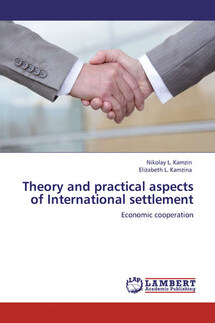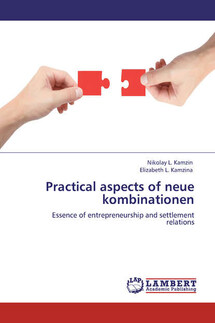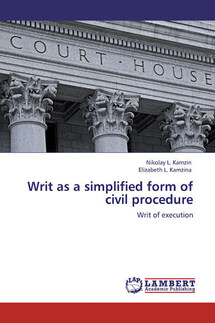Diffusion value of the pledge. Collector activity - страница 2
The main drawback is the inability of collateral circulation in the foreclosure of the collateral. In case of failure of the principal obligation the creditor is forced to sell the mortgaged property itself and meet its requirements only obtained from its value[8]. If there is a dispute between the pledge and the pledge the initial selling price of collateral established by the court on the basis of market price of the property[9]. In practice, the party concerned shall evaluate the property. Based on the results, as reflected in the report, agree with the other party selling price of the collateral.
The pledged property in its entirety provides the pledge’s claim, including interest, penalty, damages caused by delay in performance[10]. In addition, the cost of the mortgaged property is reimbursement of the mortgagee for the maintenance of things as well as the costs of foreclosure. May otherwise be provided in the contract (art 337 Civil Code).
The essential conditions required for contracts of this kind, without a contract will be deemed not concluded (art. 432 Civil Code) are:
– Information on the property, pledge, and its evaluation (par 1. art. 339 Civil Code). The contract of pledge must contain information enabling identification of the pledge the property. The language defining the collateral, such as “cars and other vehicles owned by the borrower” is not possible to determine the estate passed to collateral that is taken into account by the court[11];
– A condition on the size and duration of the obligation secured by the pledge (par. 1 art. 339 Civil Code). This condition is considered to be consistent if the agreement of the pledge is an allusion to the contract governing the principal obligation of the debtor[12];
– A condition that, at any of the parties (the mortgagor or mortgagee) the pledged property (par. 1 art. 339 Civil Code). The mortgagee in the test situation is a credit institution, a legal entity.
Obtaining property in the pledge does not entail any tax consequences on the value added tax, as the ownership of the collateral remains with the mortgagor (par. 2 art. 335 Civil Code). Value of property received in pledge, revenue is not included (subpar. 2 par. 1 art. 251 Tax Code). Property received in bail, remains the property of the mortgagor, regardless of whether it is the mortgagor or mortgagee in.
If the object of pledge is a vehicle, the vehicle passport makes no marks, although the science continues to discuss the issue of maintaining a database of encumbrance of vehicles, but in practice do not enter such arrangements. The introduction of registration of mortgage transactions vehicles can only be set by issuing regulations, providing for state registration of rights for vehicles according to paragraph 2 art. 130 Civil Code[13].
The legal nature of a dual pledge, I think, it must not be simplified by reducing the complex formed by the characteristics of the civil law institutions. In the social sense of security is the value of the mortgagor is the property of value, which the lender in an advantageous manner is able to obtain satisfaction of claims of financial misconduct in the performance of duties by the borrower to repay the loan. The main function of collateral flow from its definition, this is an interim, minimizing the risks associated with the lender and the deterrent associated with the psychological impact on the behavior of the debtor. Public activity is catalyzed by a combination of factors, one of which is wealth, which by their nature can act as pledged. Subjects having them in his possession, in the normal course of business subject to the motivation and stimulation, which is often the psychological basis of entry into collateral relations.









